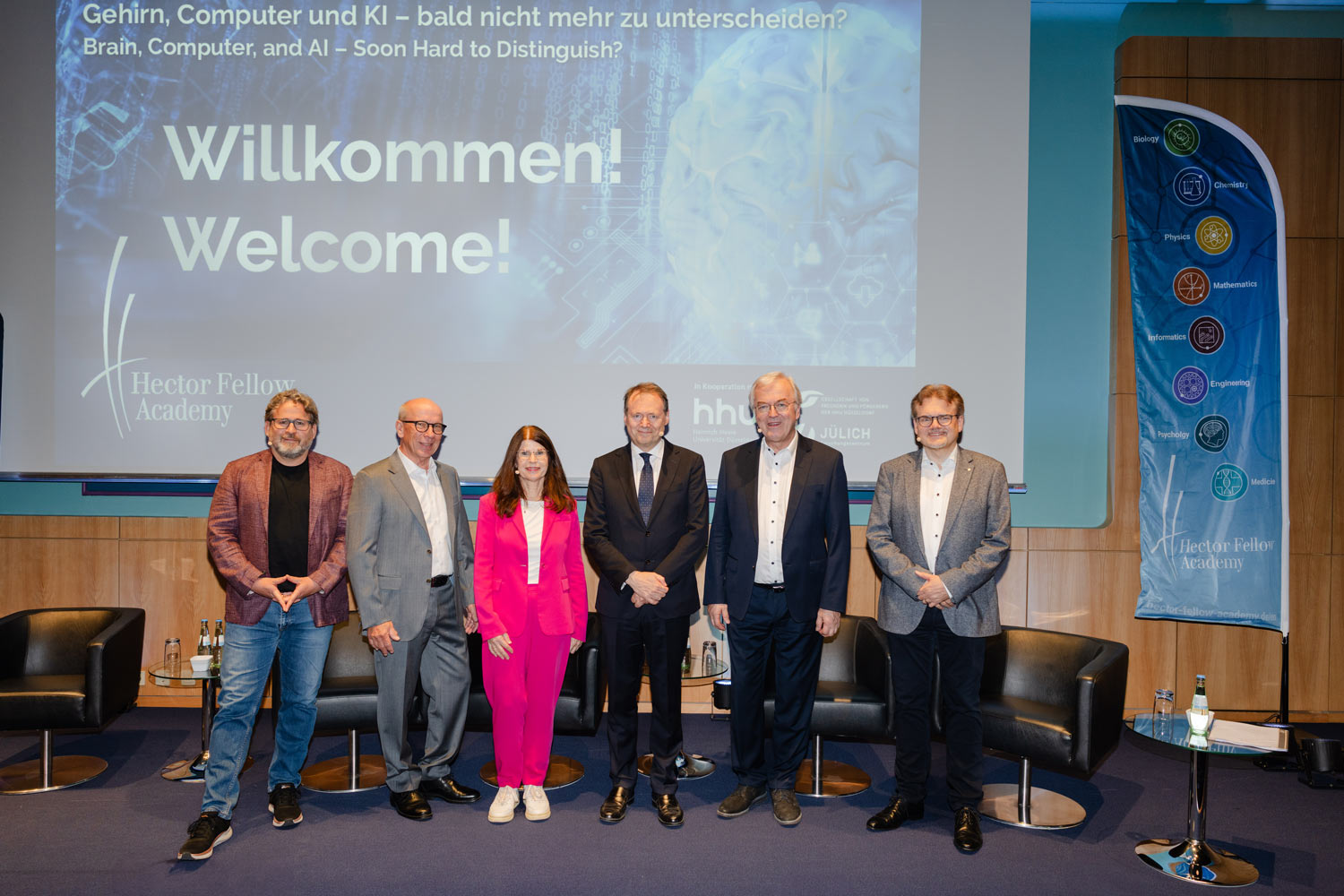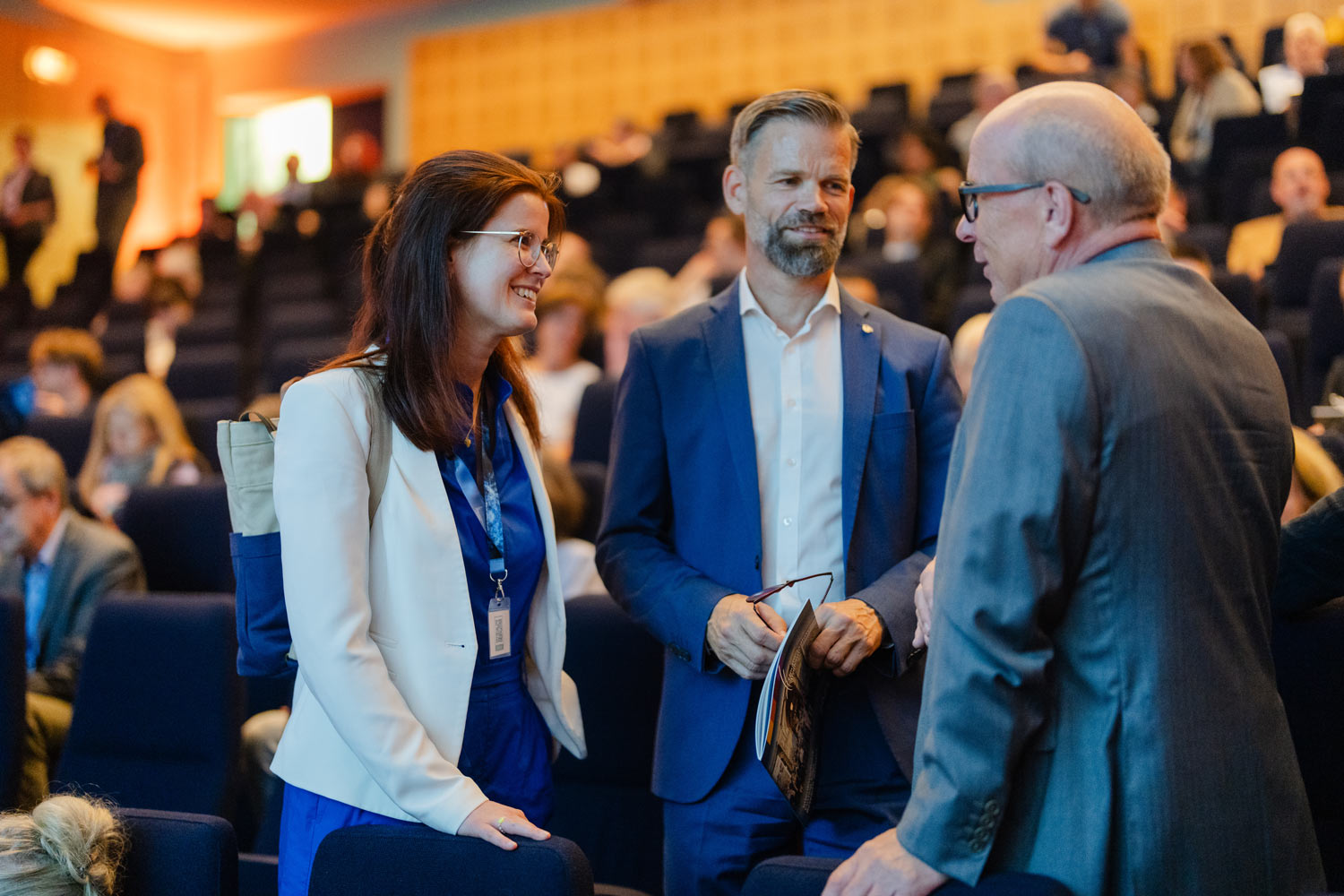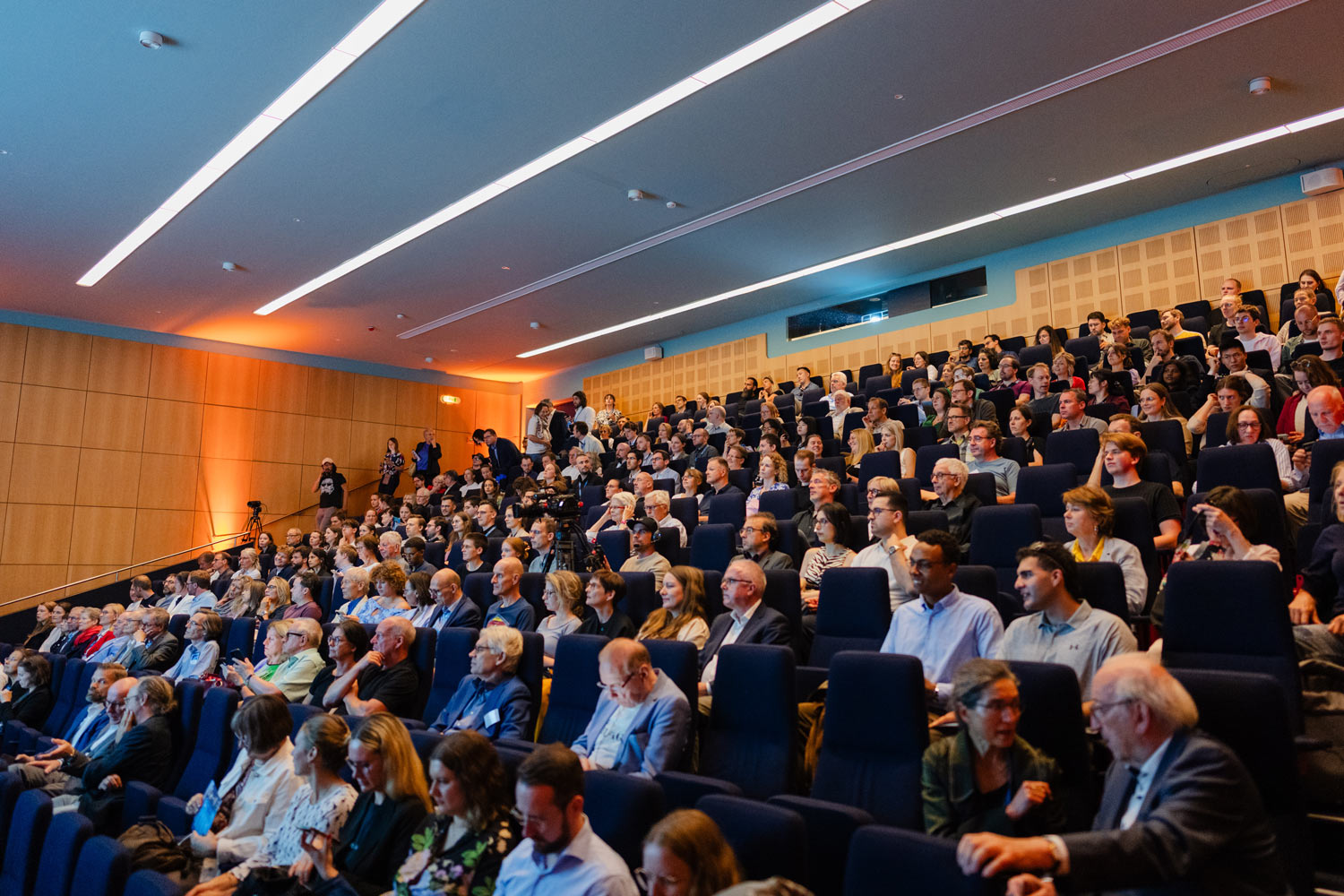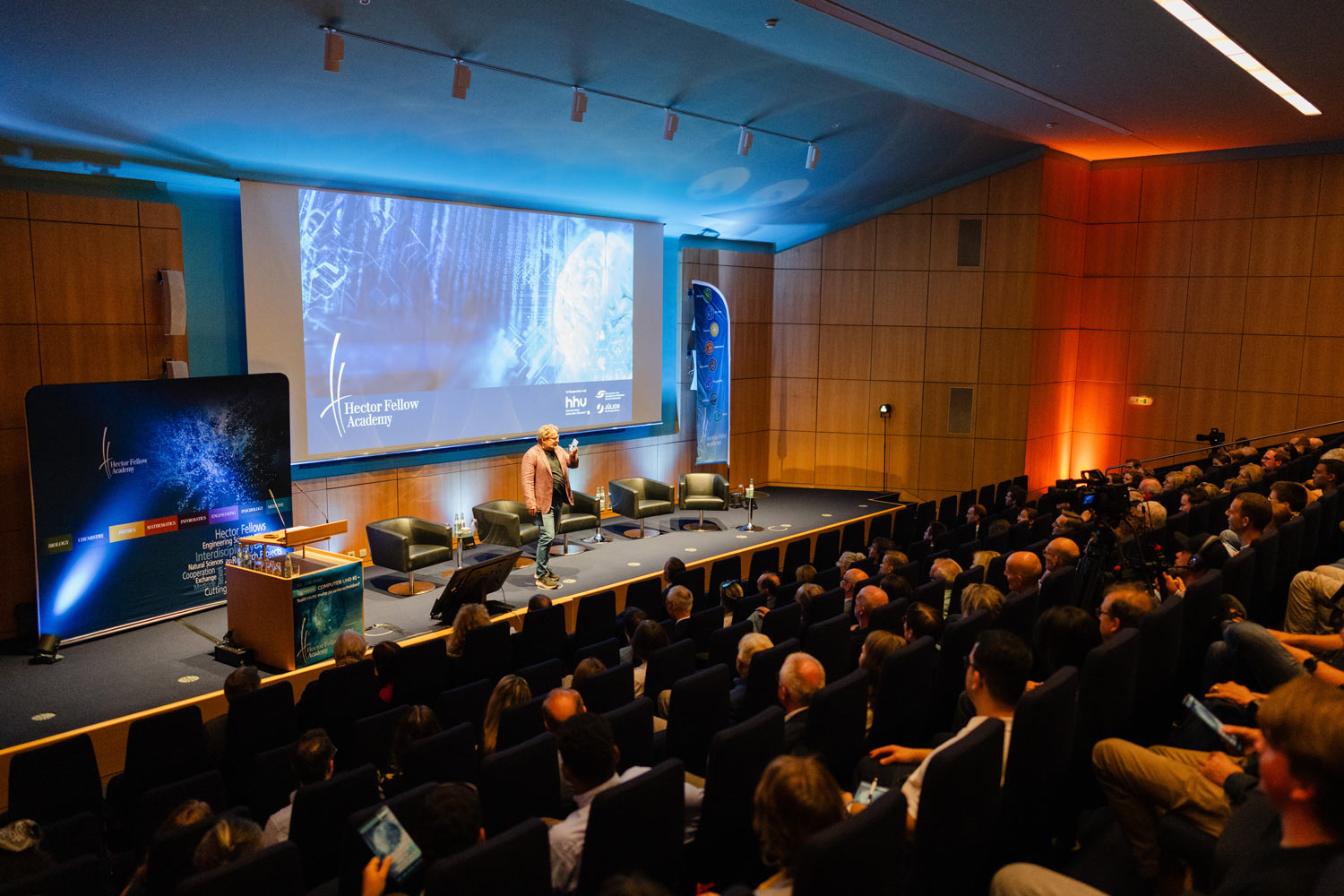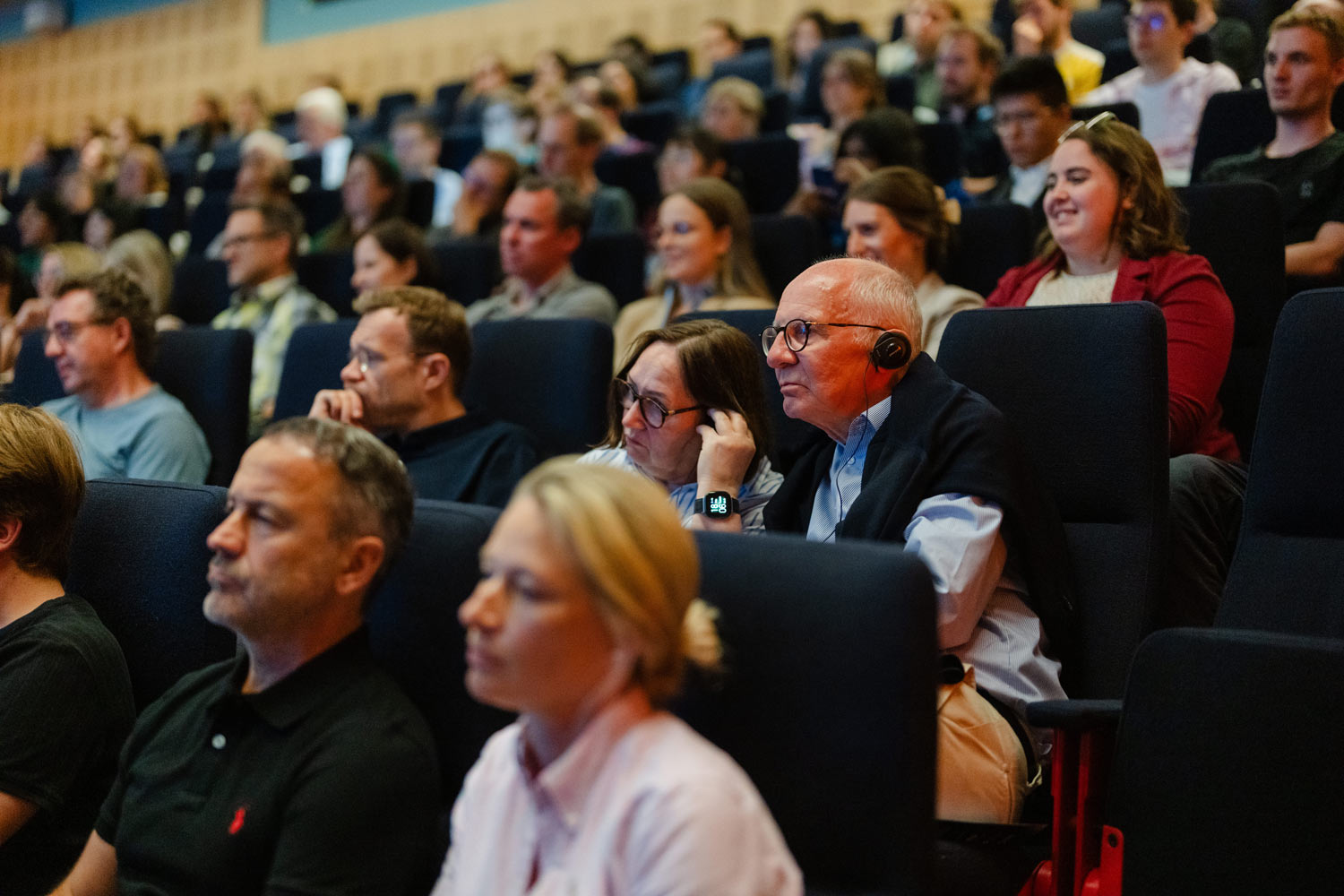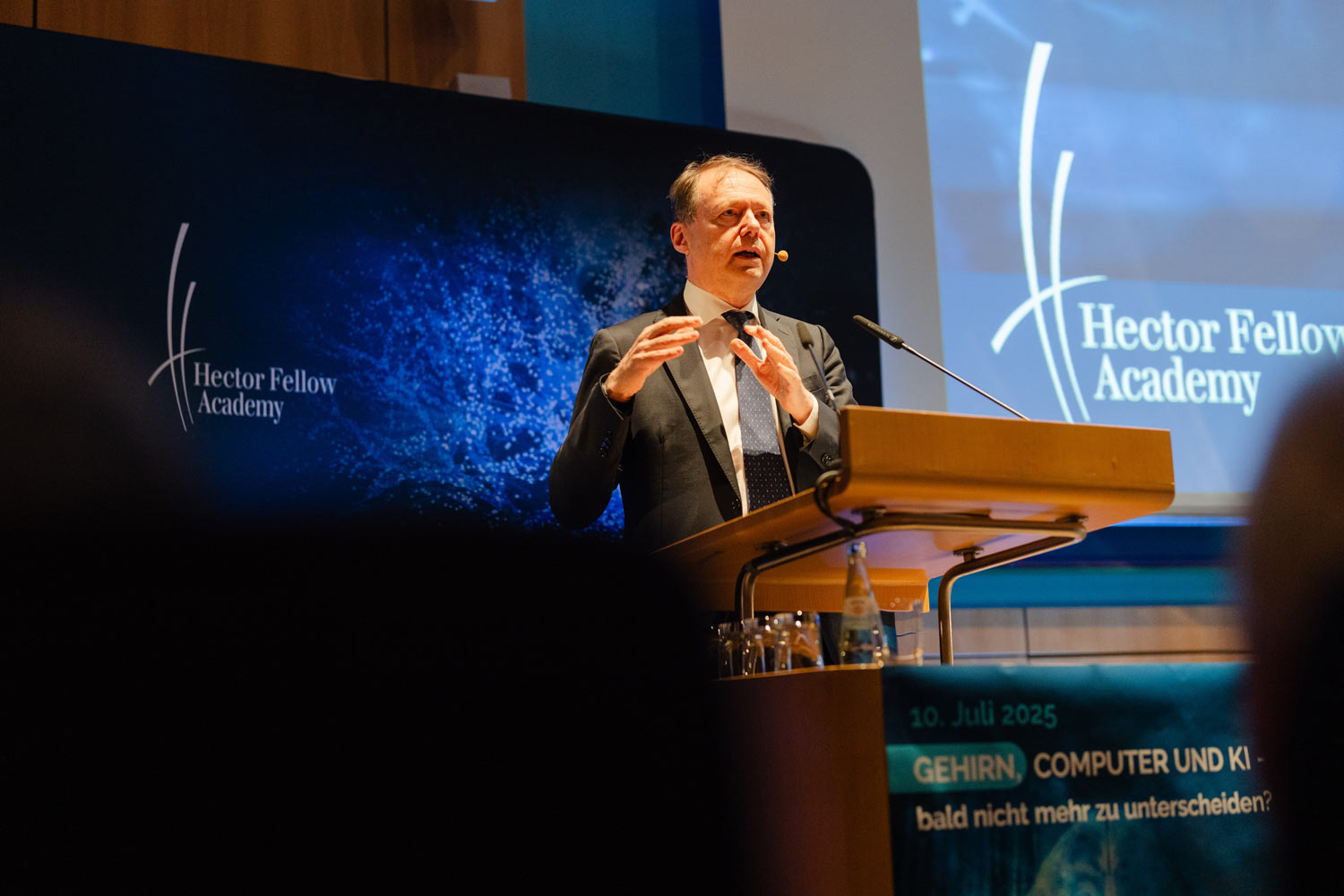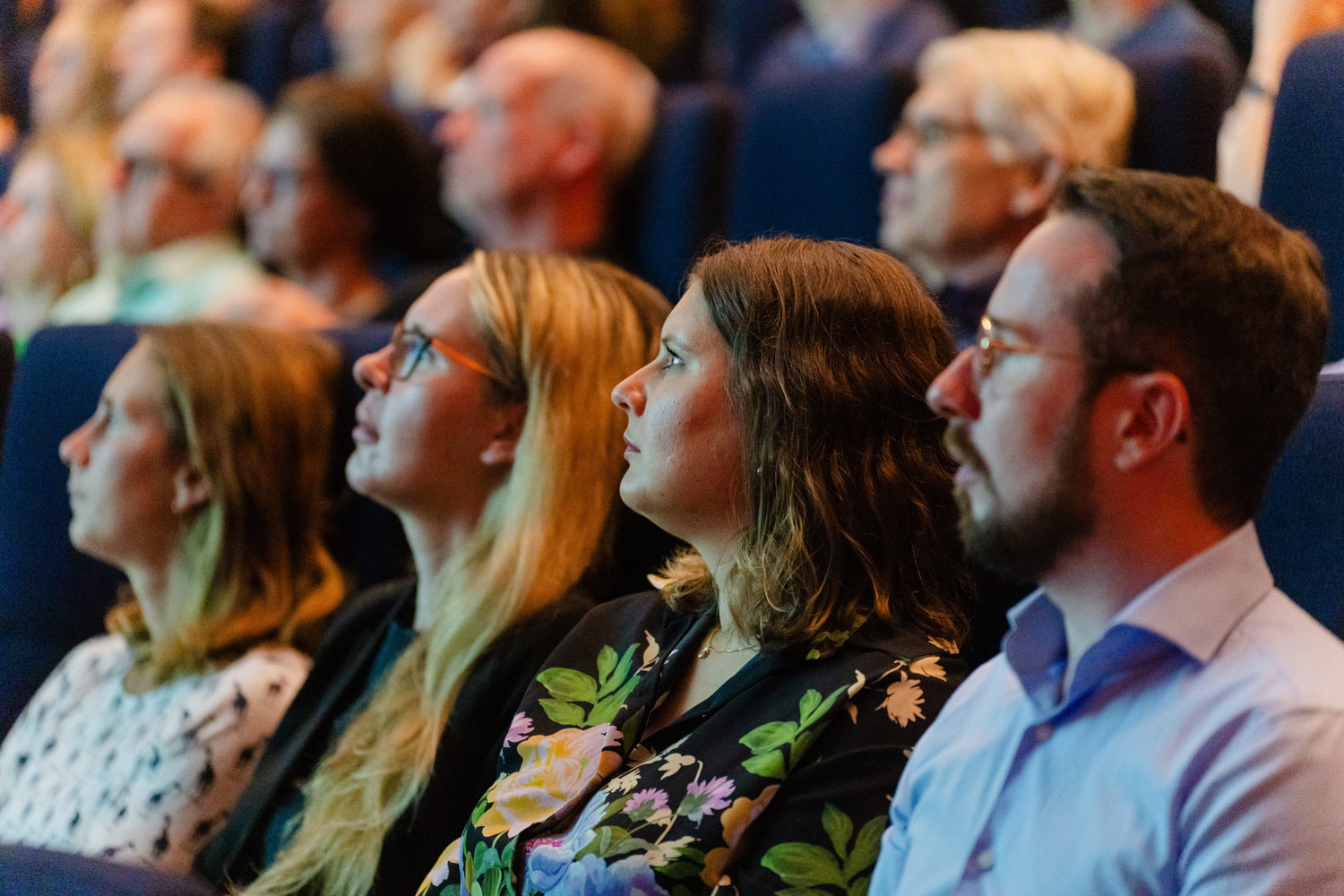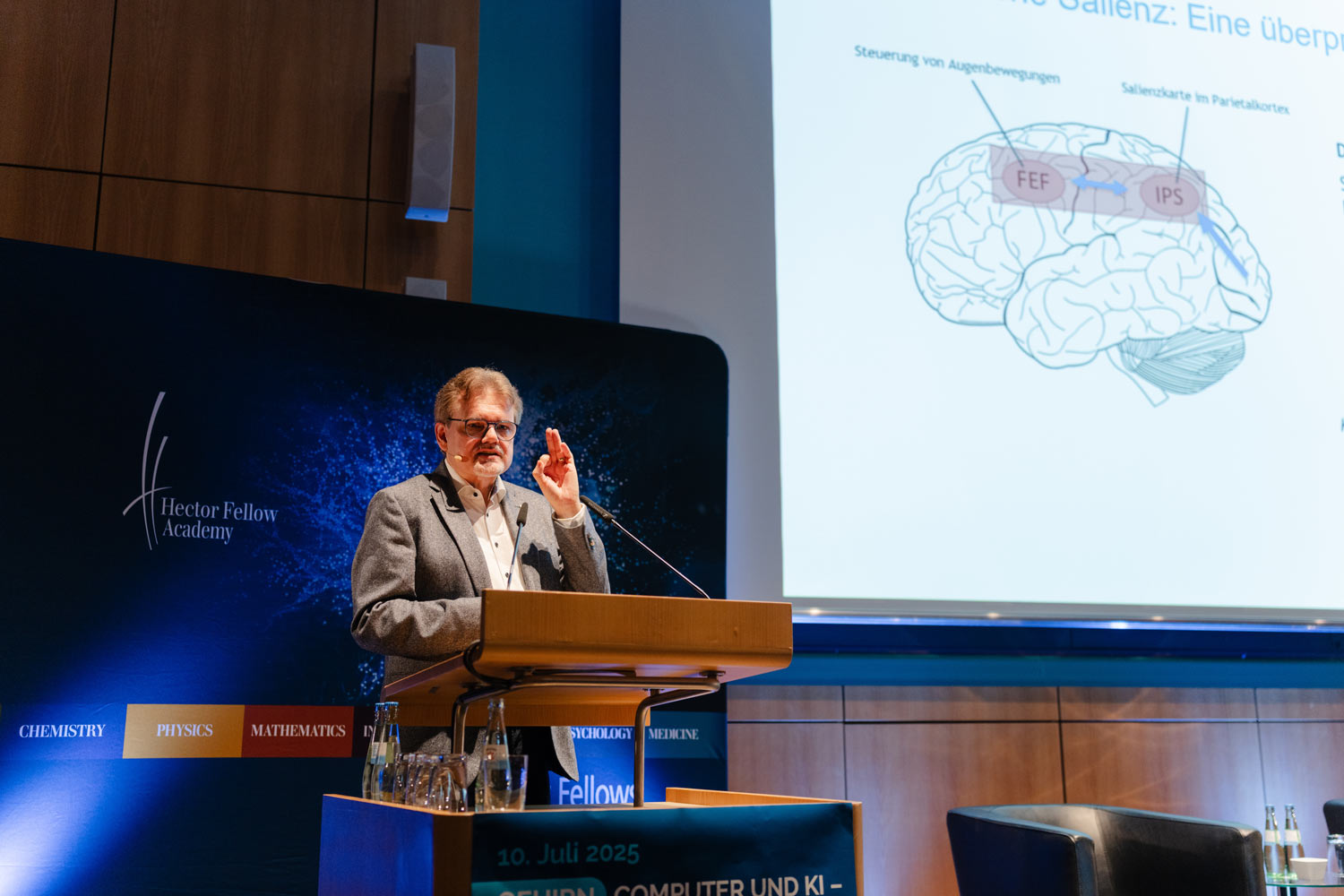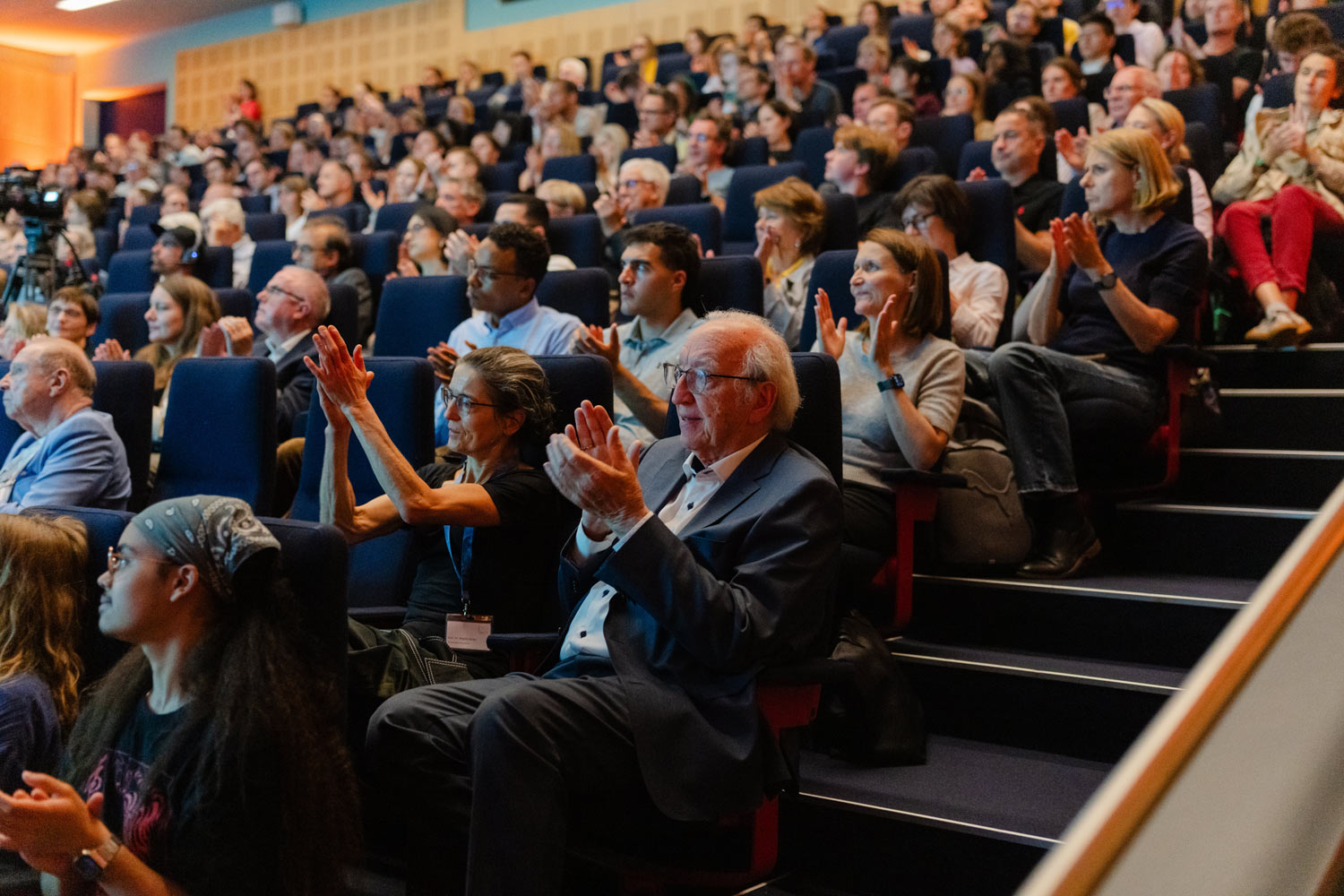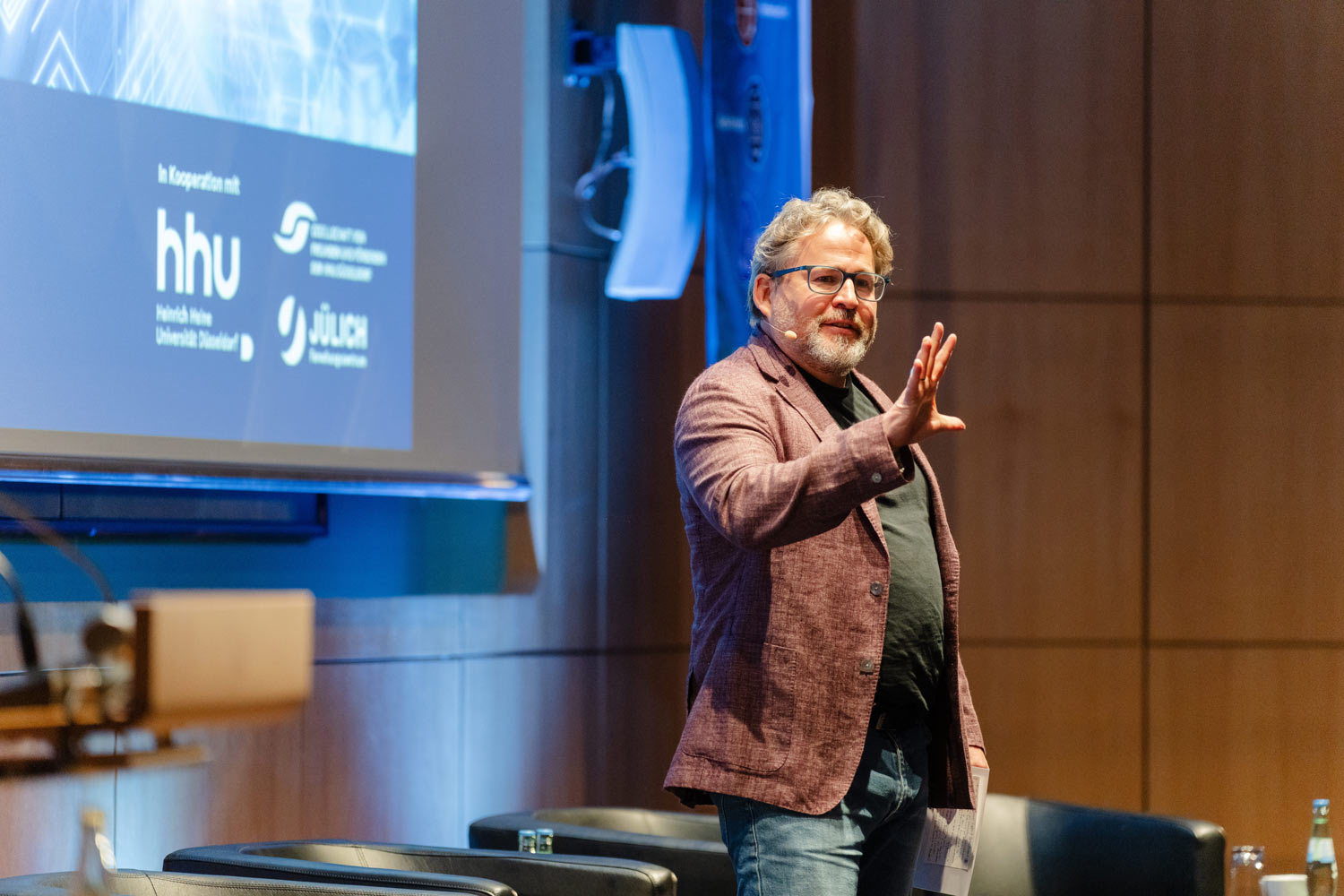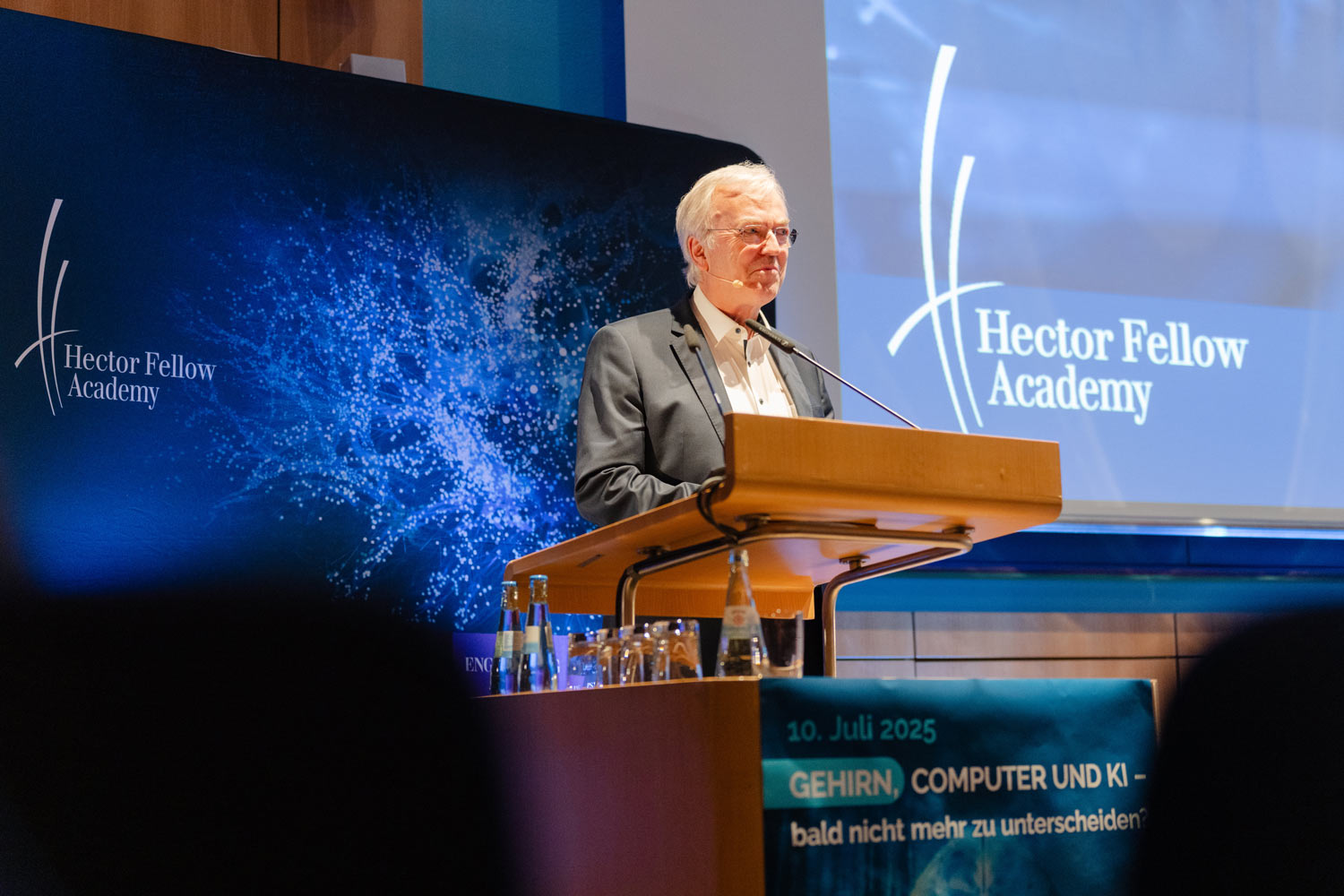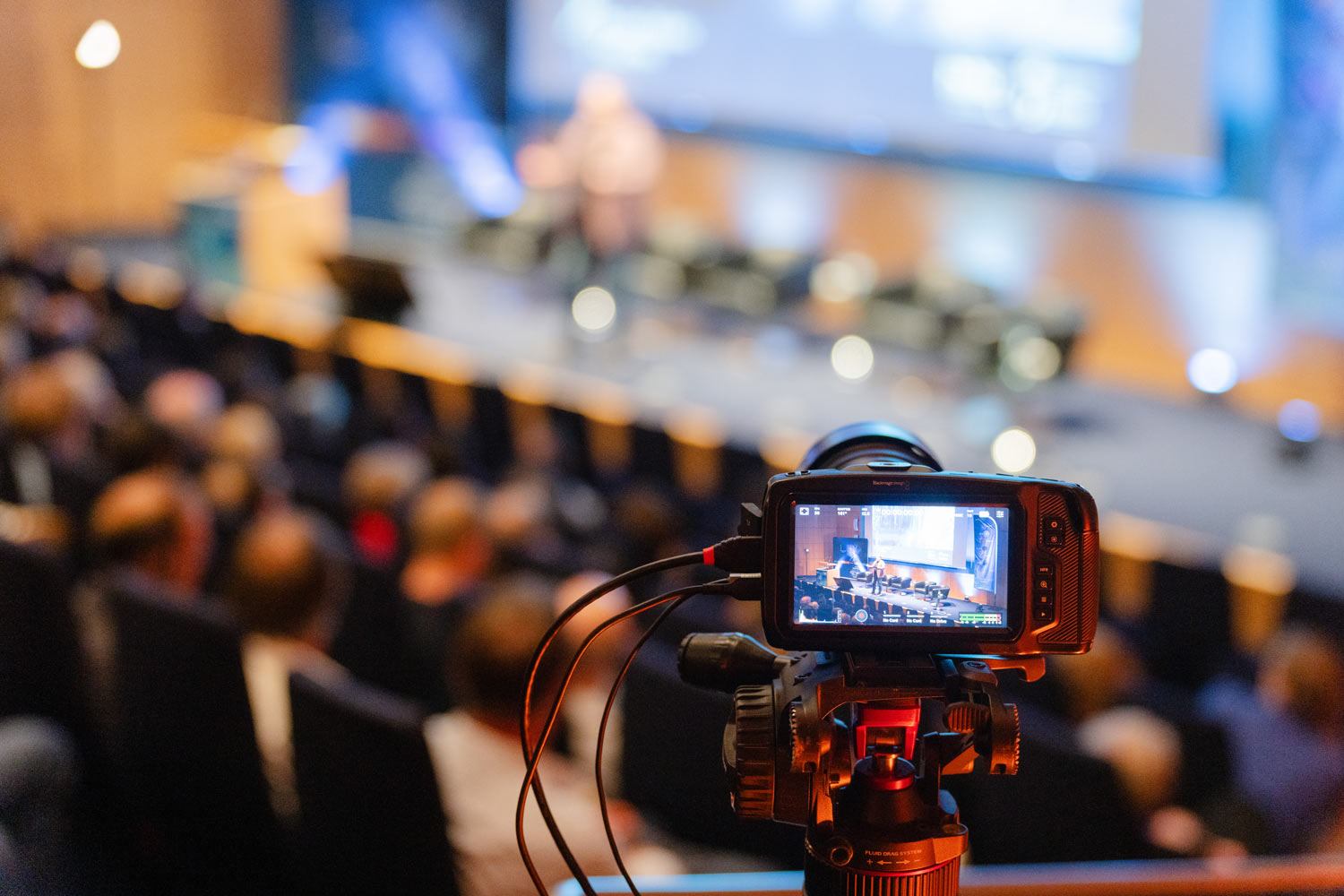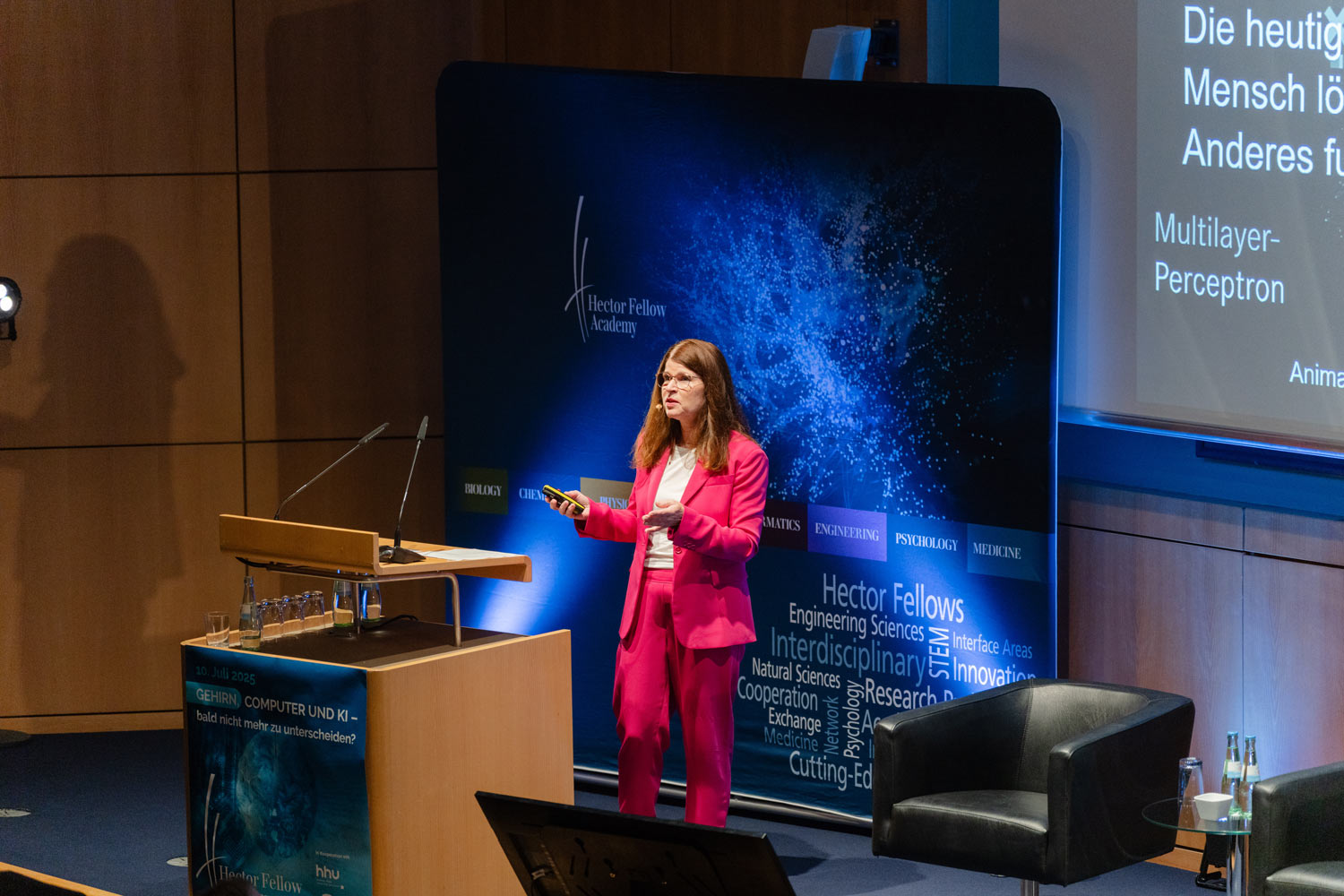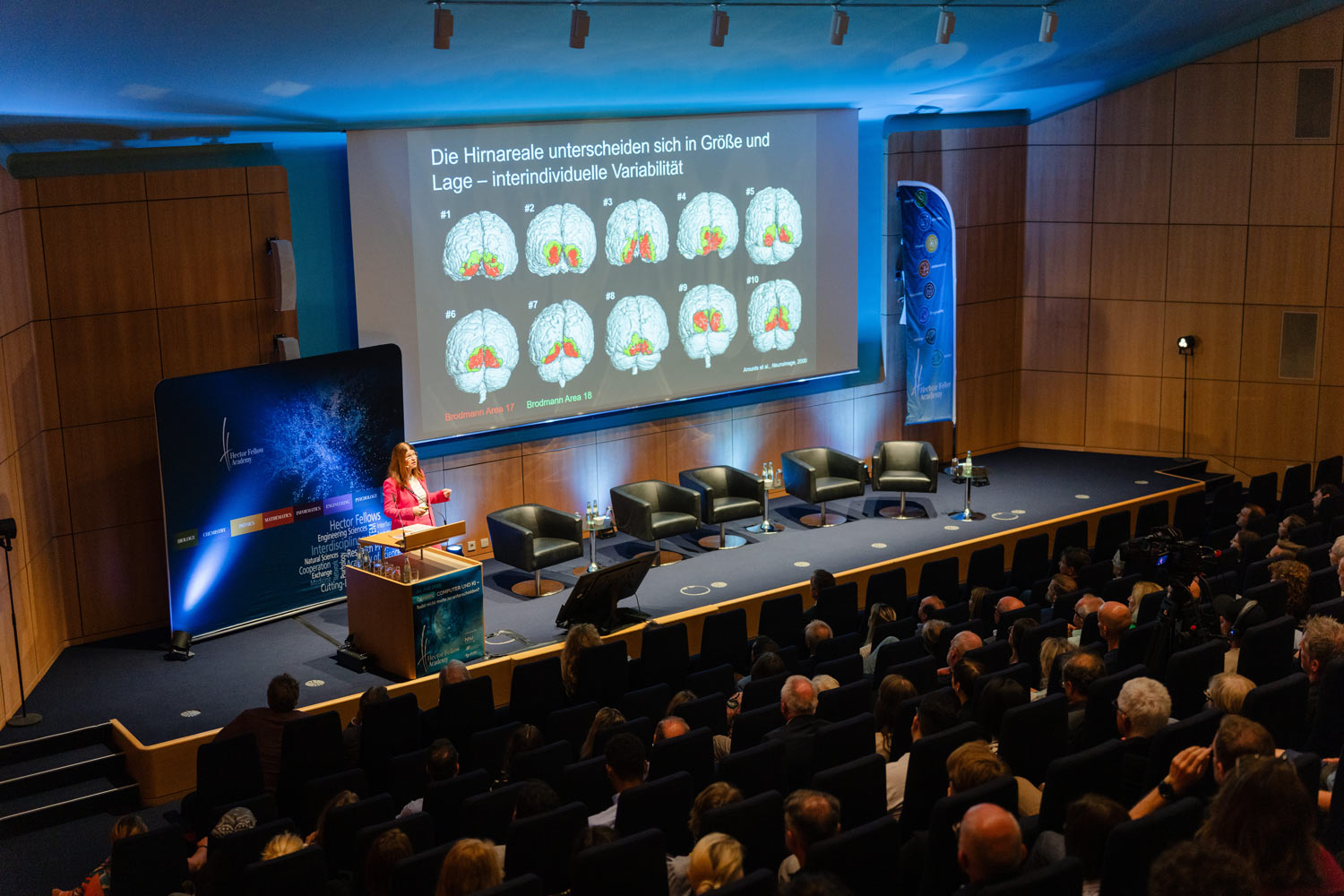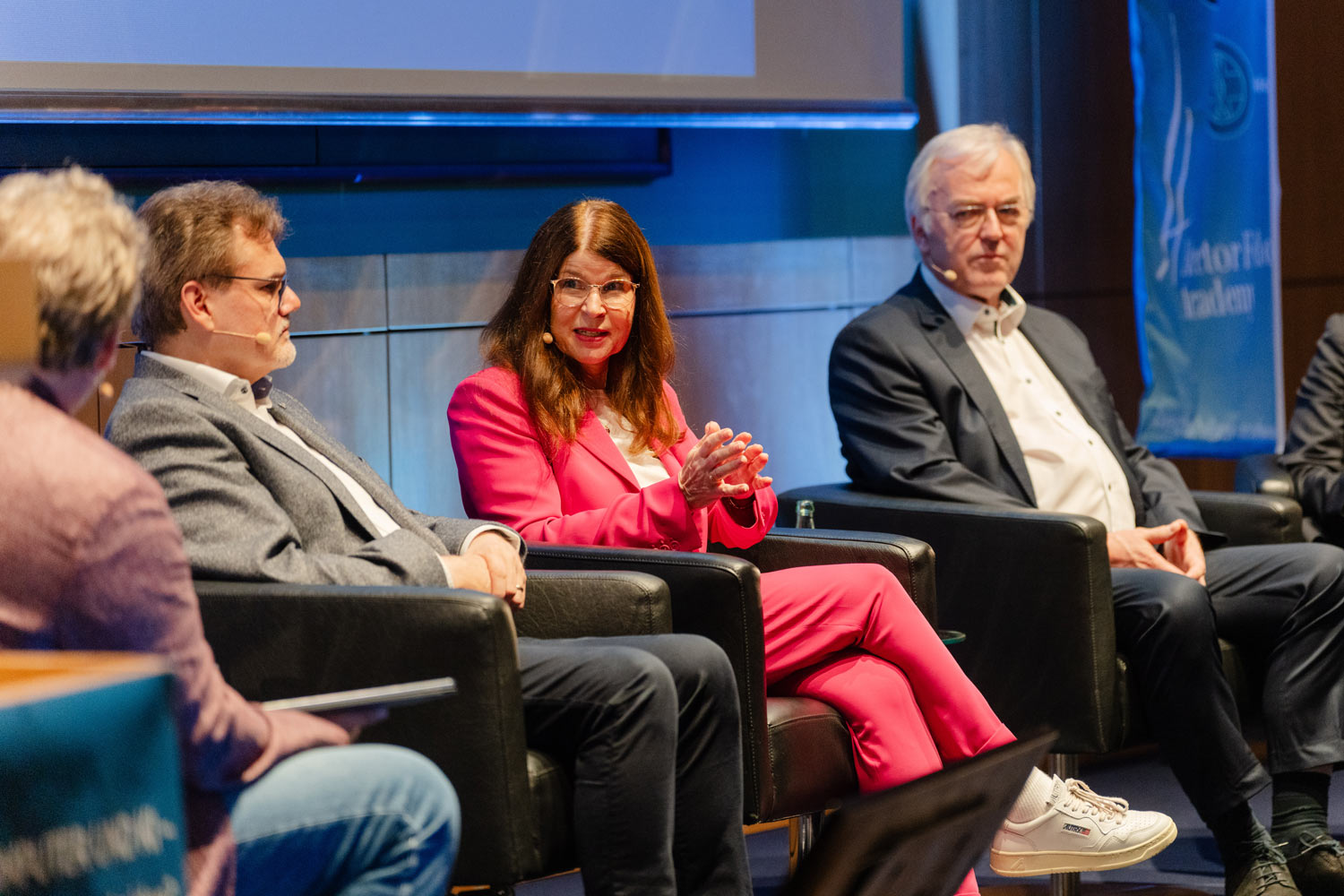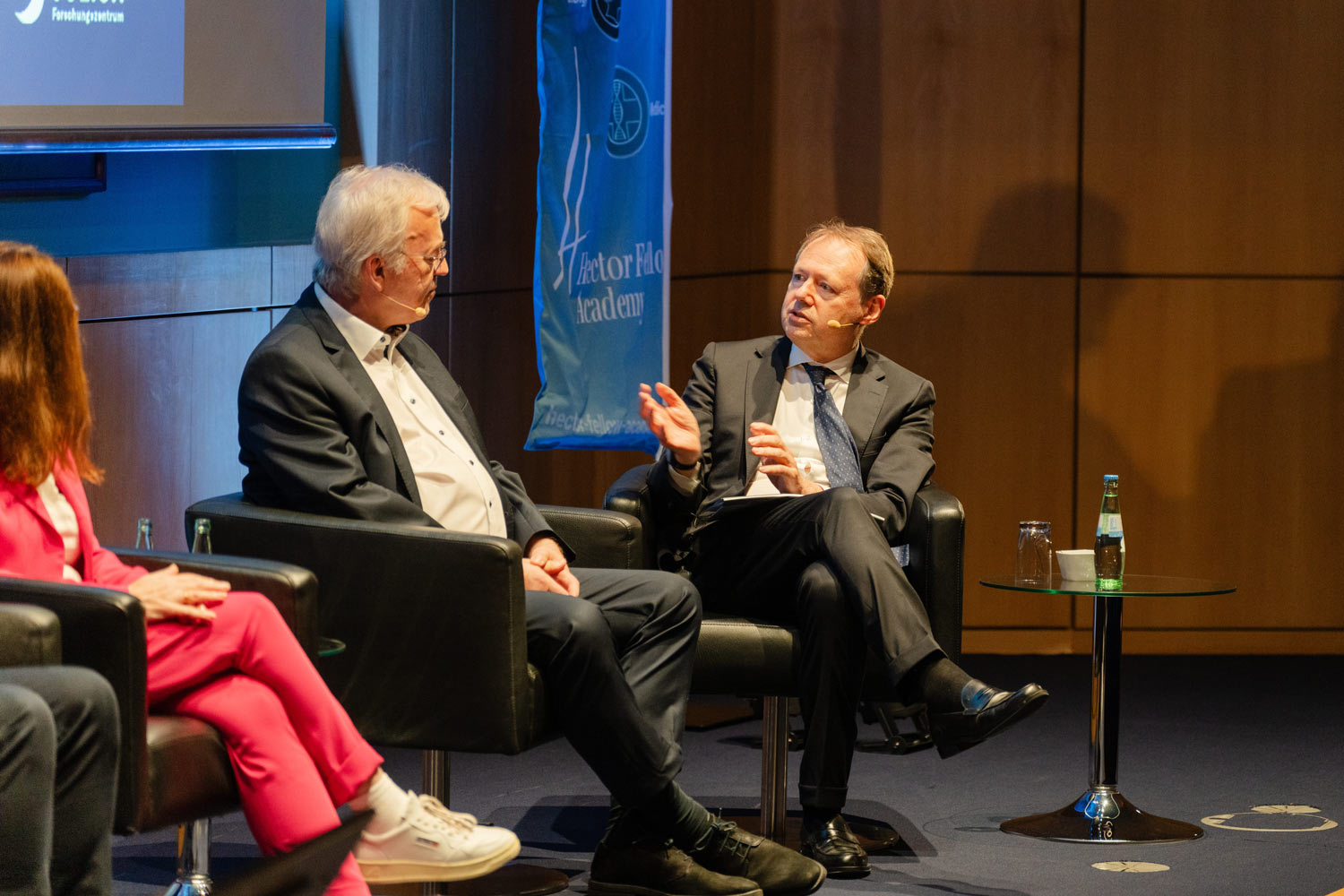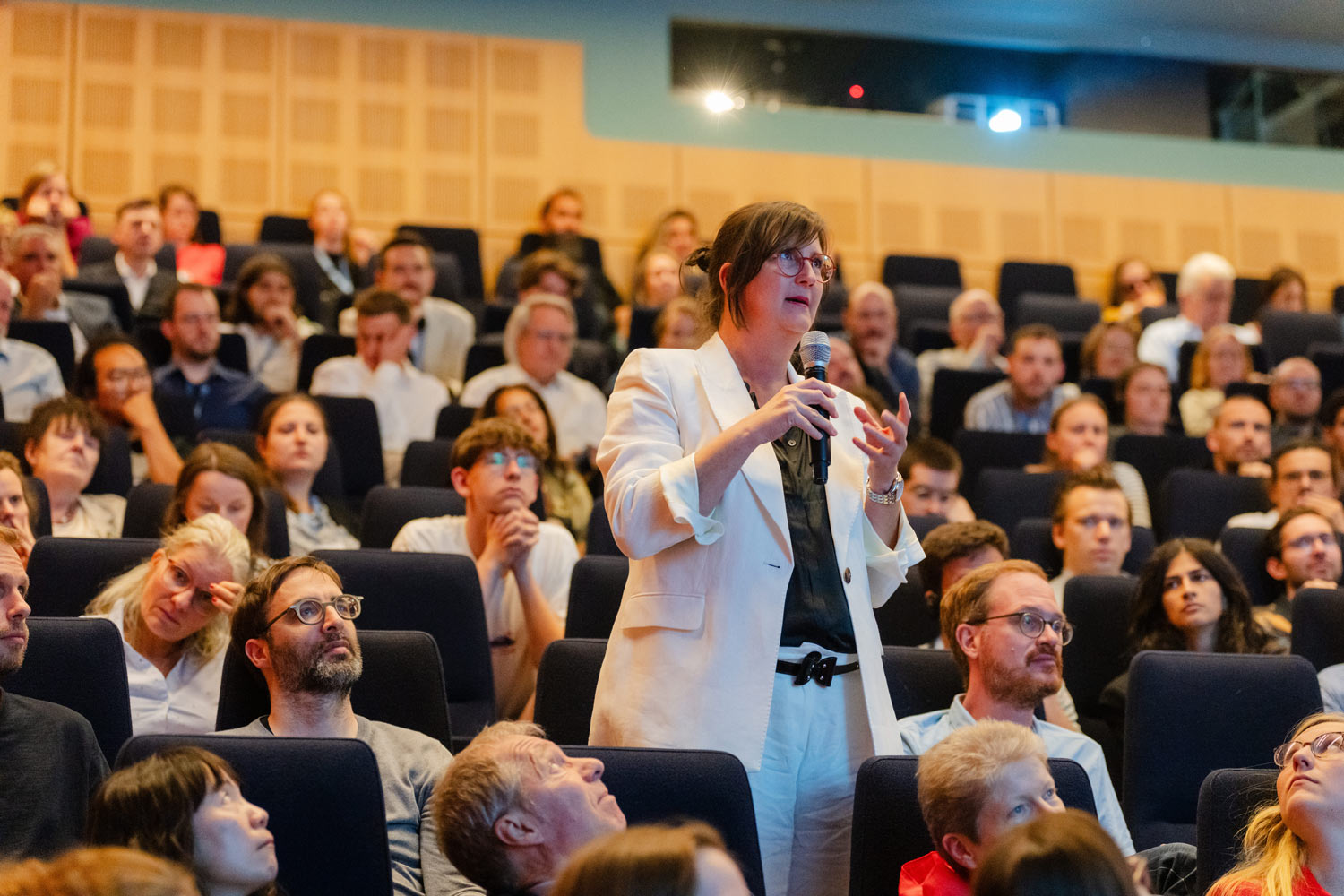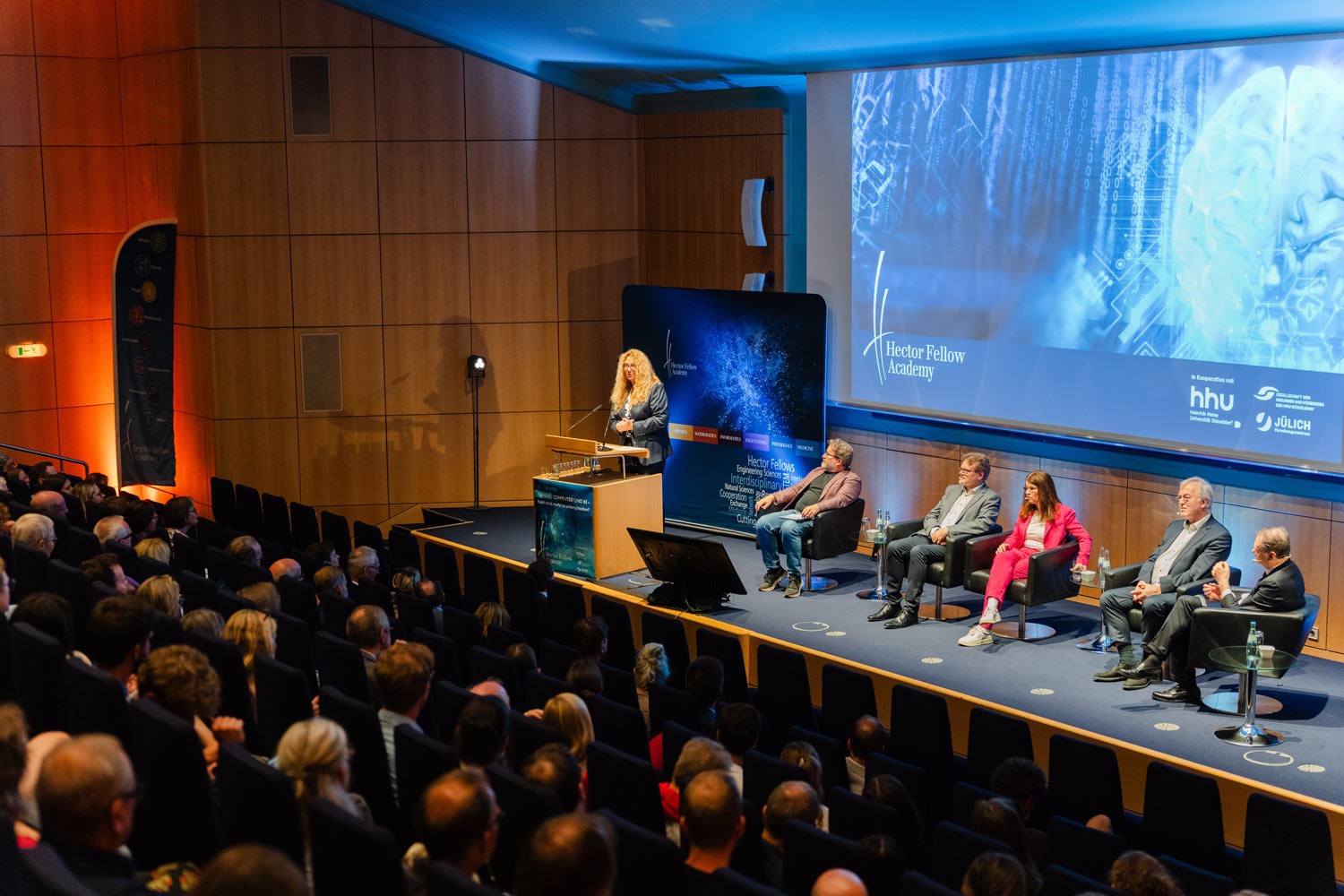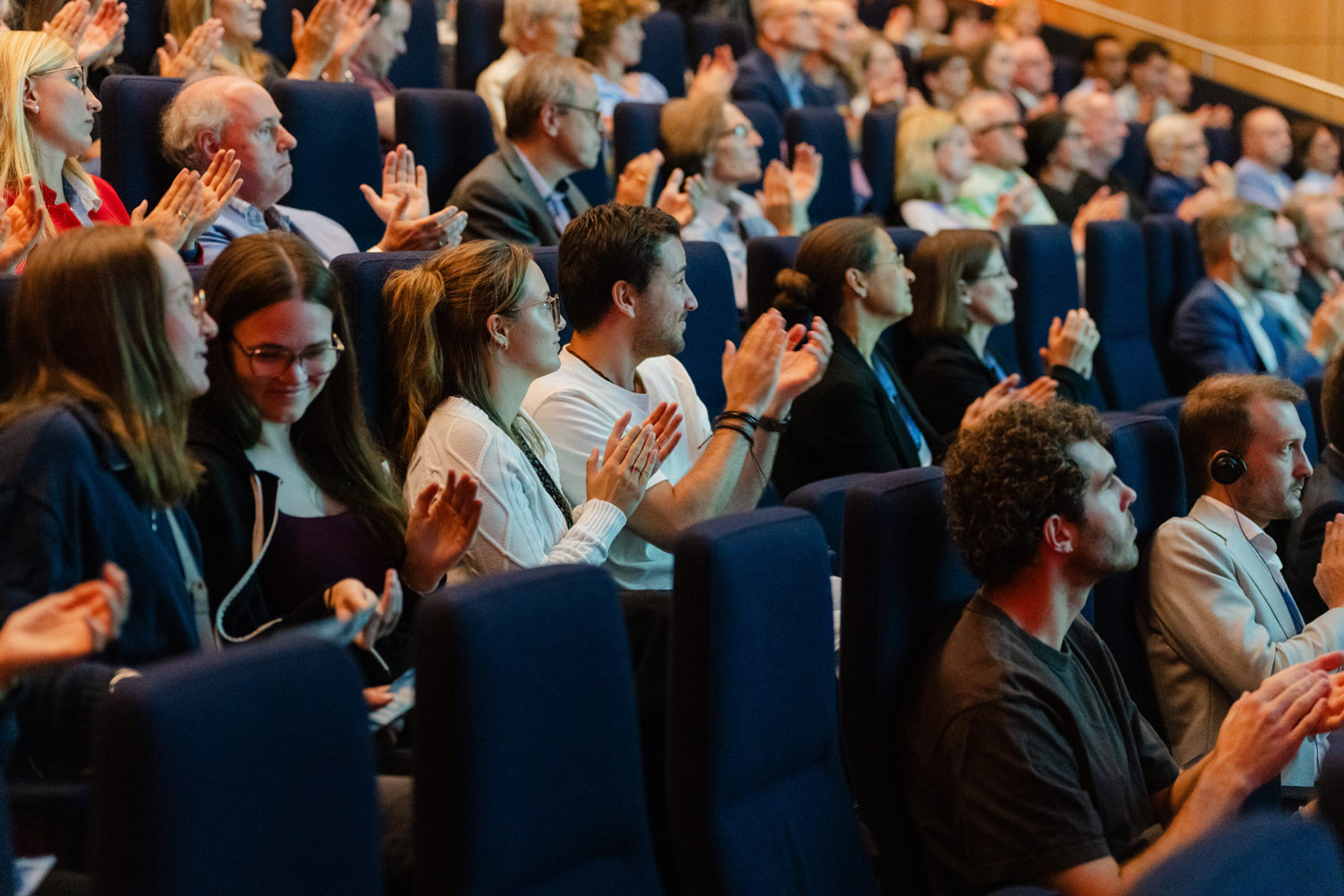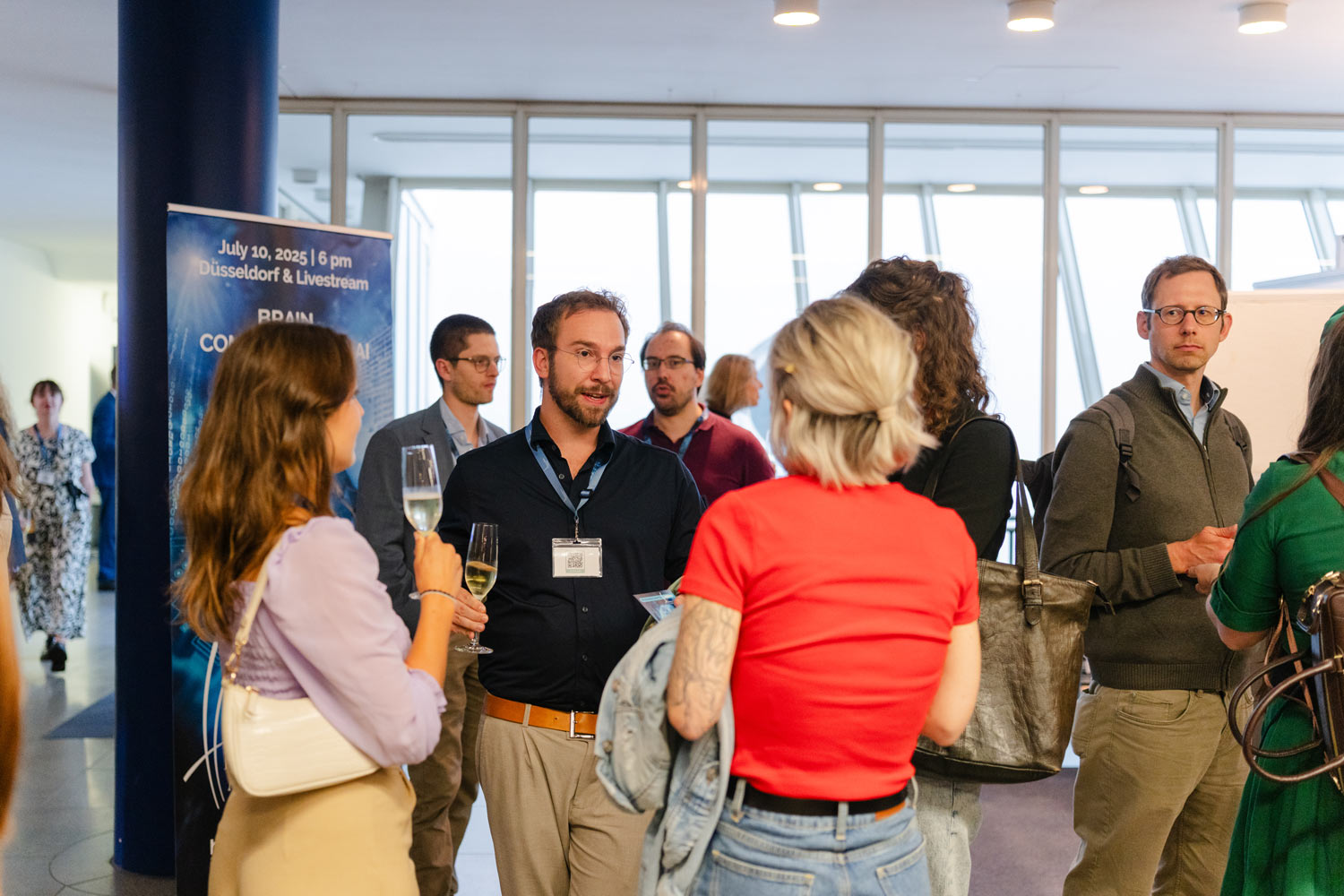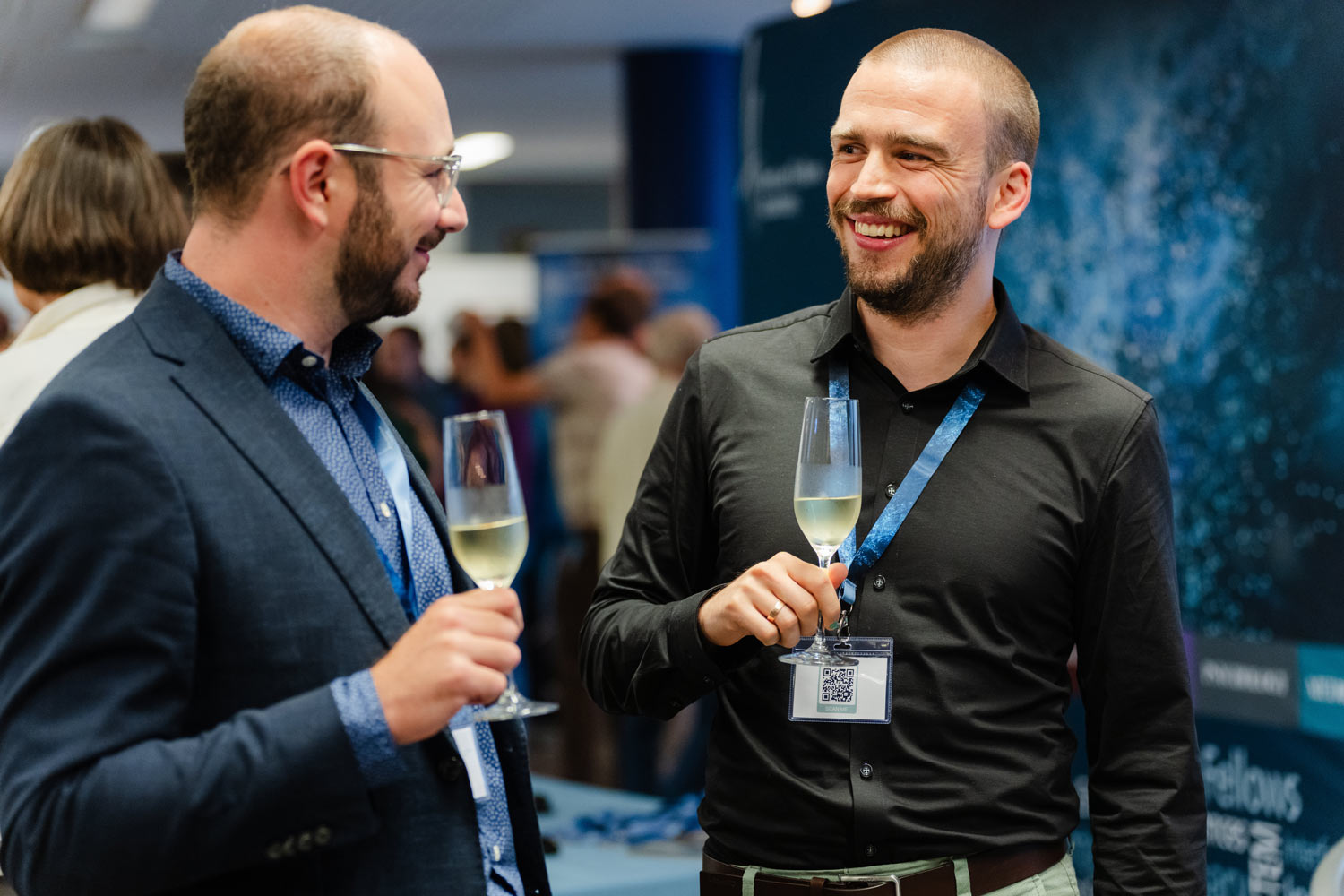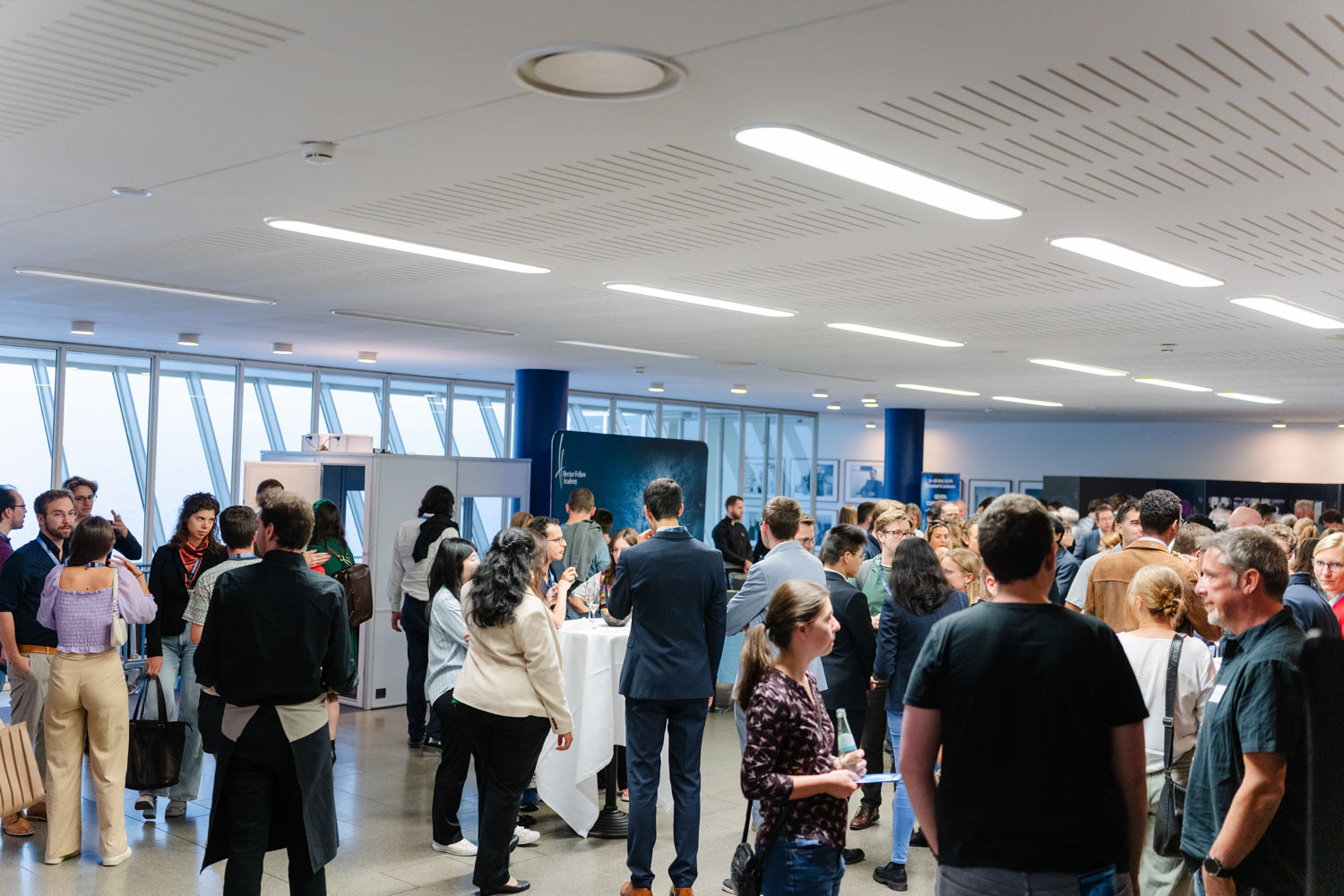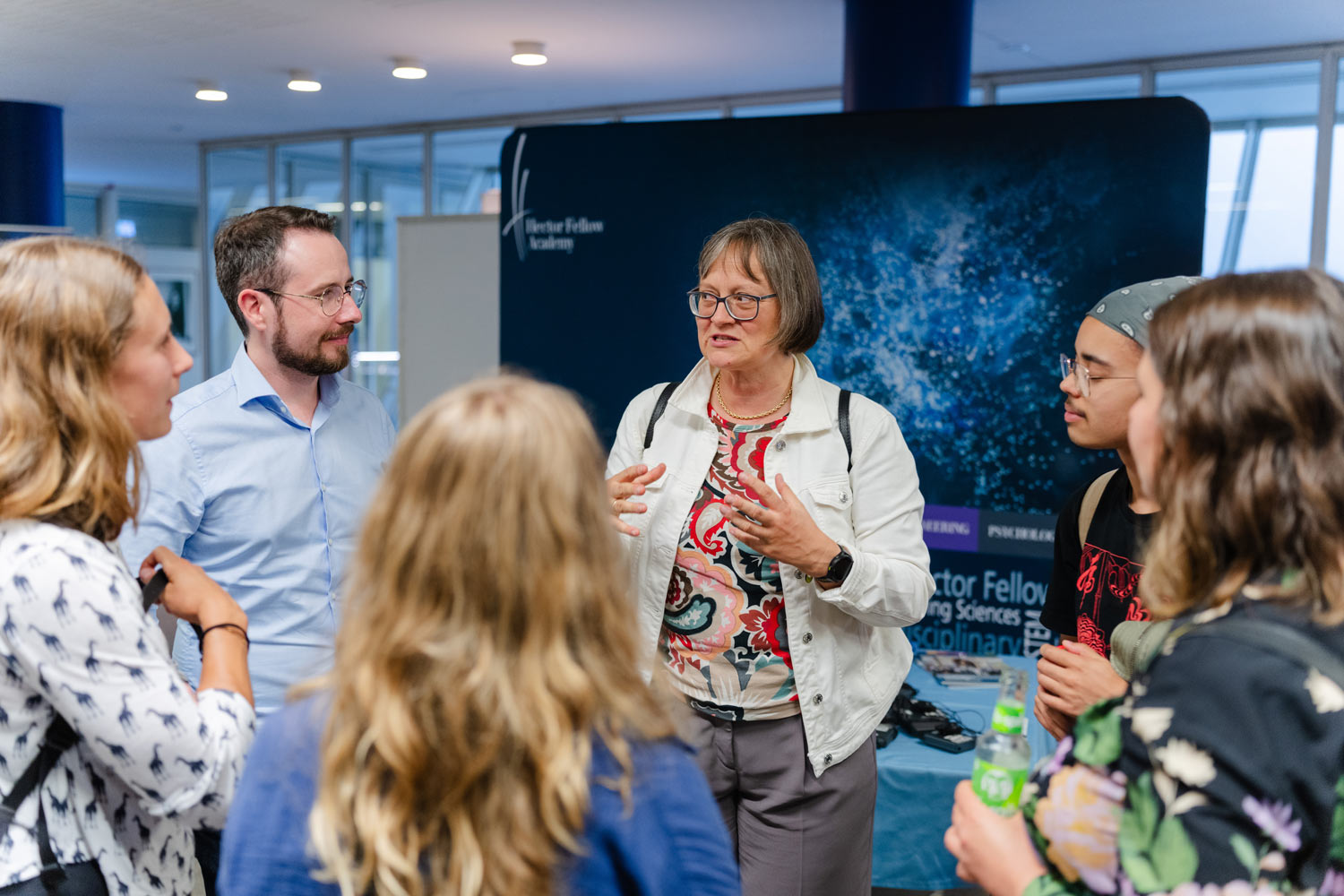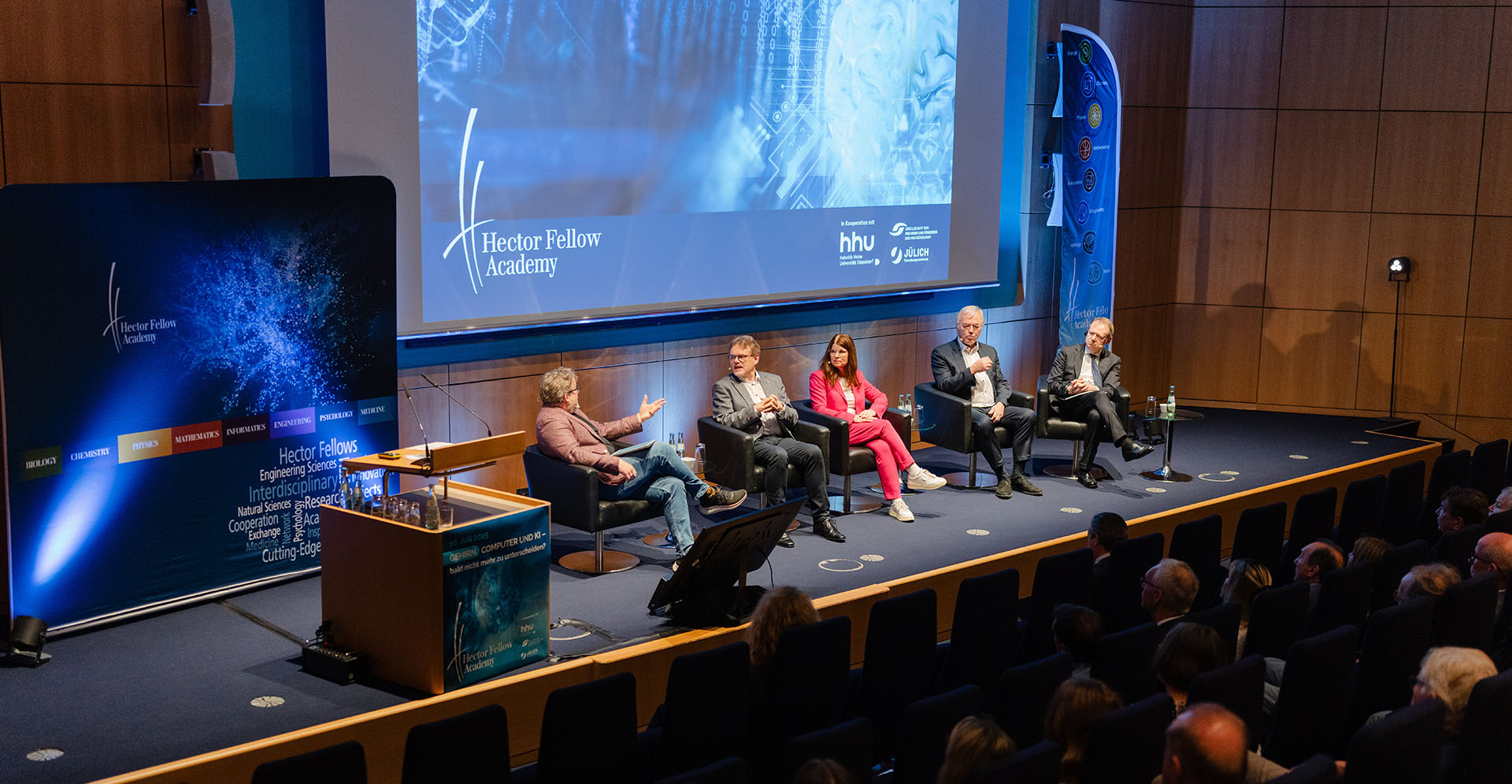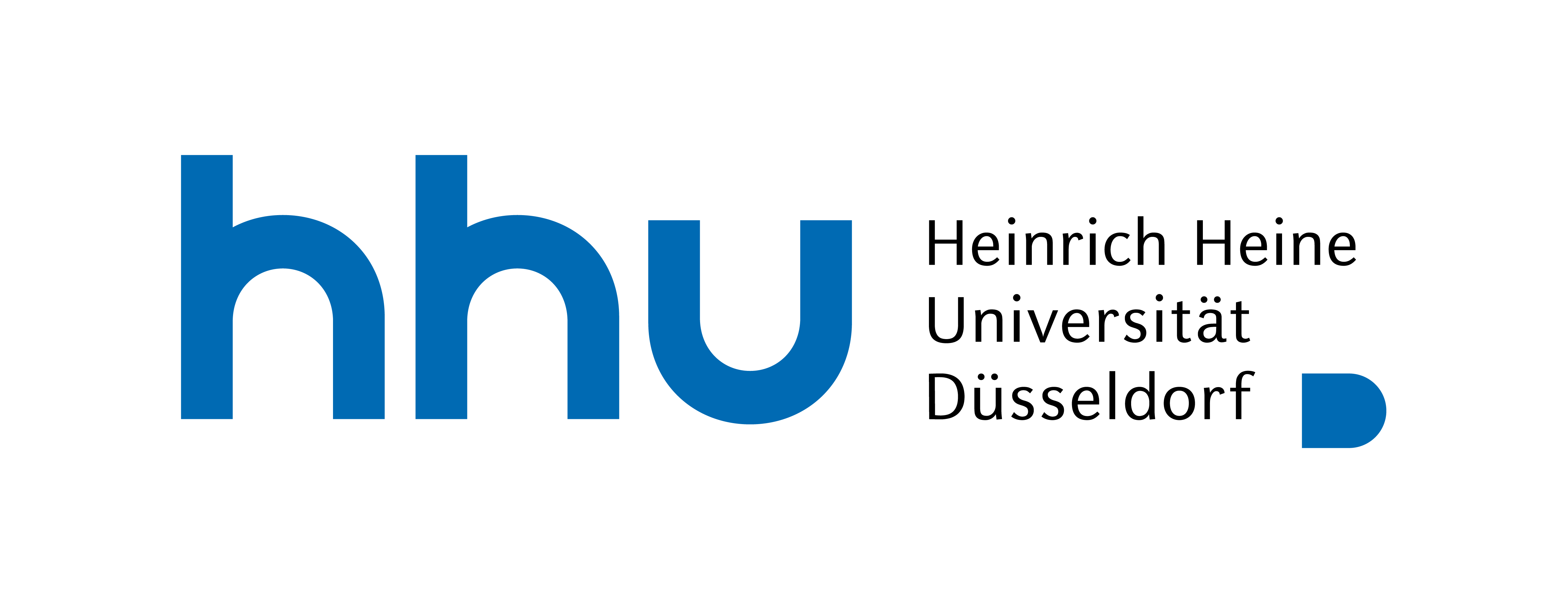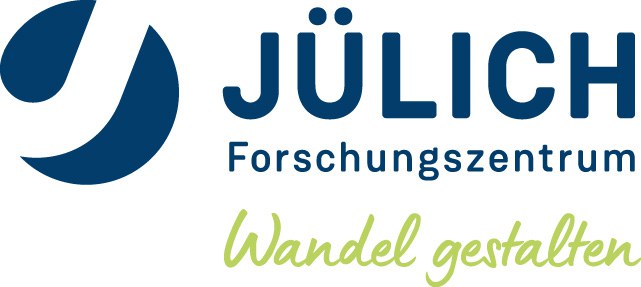Brain, Computer, and AI — Soon Hard to Distinguish?
Science Evening 2025
Düsseldorf — On July 10, 2025, the 10th Science Evening of the Hector Fellow Academy took place in Düsseldorf and via livestream — in cooperation with Heinrich Heine University Düsseldorf, Forschungszentrum Jülich and the Friends and Sponsors of Heinrich Heine University Düsseldorf. This year's topic was dedicated to one of the most fascinating fields of research of our time: the interplay between the brain, computers and artificial intelligence.
Numerous interested guests on site and in the livestream had the opportunity to immerse themselves in the fascinating world of the human brain and learn about the latest developments in neuroscience, computer science and AI research. How much does our knowledge of the brain influence the development of AI? Can artificial intelligence itself become a model for human thinking? And what role do supercomputers play in this?
The recording of the event is now available on the Hector Fellow Academy YouTube channel in German and English.
Roberto Viola, Director General for Communication Networks, Content and Technologies (CNECT) at the European Commission, opened the evening and spoke about the importance of artificial intelligence for the future of Europe, particularly in the field of medical research.
Prof. Dr. Rainer Goebel (Maastricht University), gave interssting insights into the bidirectional relationship between neuroscience and AI – how artificial neural networks are inspired by the brain's architecture, and how, in turn, these networks serve as new models to better understand the brain.
Prof. Dr. Dr. Thomas Lippert (Forschungszentrum Jülich) gave an impressive overview of how supercomputers have become the backbone for training today’s largest AI models – and the immense computational, data, and energy requirements this entails.
Prof. Dr. Dr. h.c. Katrin Amunts (Heinrich Heine University Düsseldorf & Forschungszentrum Jülich), scientific chair of the evening, presented the latest developments in brain mapping. Her work connects AI and neuroscience to analyze the human brain down to the cellular level and uncover new layers of understanding.
In the following panel discussion, the experts explored whether and when artificial and human intelligence might resemble each other – and what implications this has for society. The evening was moderated by Wolfram Eilenberger, philosopher, author, and public intellectual.
The next Hector Fellow Academy Science Evening will take place on May 21, 2026 in Munich, at the Bavarian Academy of Sciences and Humanities, and via livestream. Under the topic “What can we learn from children — the future of personalized medicine”, top-class speakers will once again provide fascinating insights into their research. The scientific host is Christoph Klein, Professor of Pediatrics and Adolescent Medicine and Medical Director of the Children's Hospital at the Dr. von Hauner Children's Hospital of the Ludwig Maximilian University of Munich.
Scientific Host
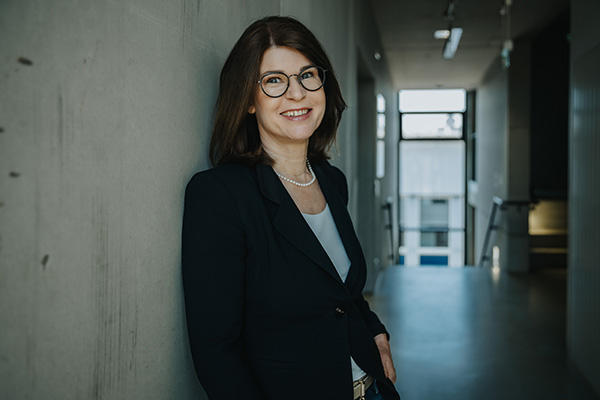
Katrin Amunts
Heinrich-Heine-Universität Düsseldorf / Forschungszentrum JülichModeration

Wolfram Eilenberger
Writer, Philosopher, PublicistBrain, Computer, AI — Soon Hard to Distinguish?
Can AI think like a human? Can AI help us to better understand our own brains? What to do with the huge amounts of data that are generated? At the HFA Science Evening 2025, scientists will provide insights into current developments in neuroscience, computer science and AI research.
Image Gallery
Talks
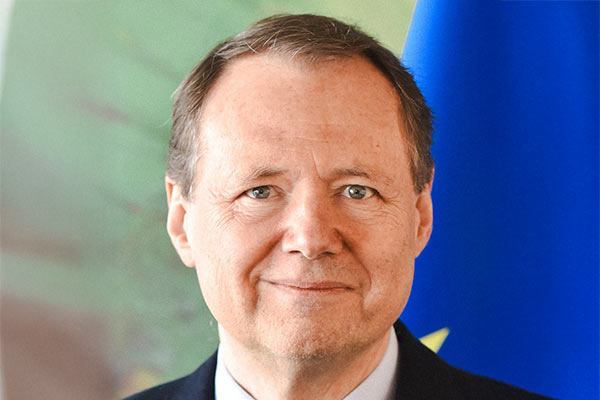
Roberto Viola
European CommissionDirector-General for Communications Networks, Content and Technology (CNECT)
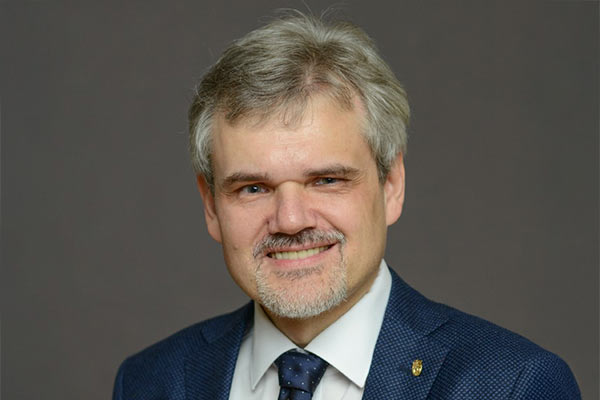
Rainer Goebel
Maastricht University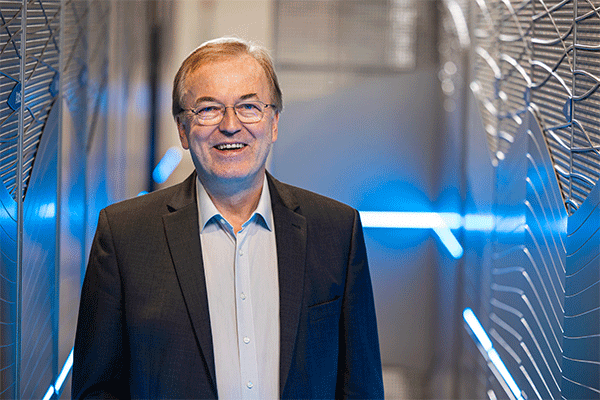
Thomas Lippert
Forschungszentrum Jülich
Katrin Amunts
Heinrich-Heine-Universität Düsseldorf and Forschungszentrum Jülich

